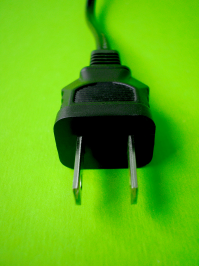
Online Newsletter
Sign up for our newsletter to receive the latest news and information from publics.bg
Sign up for our newsletter to receive the latest news and information from publics.bg
Publications

 26.03.2013
26.03.2013Caretaker Government Suggests Emergency Energy Sector Measures
Cutting renewable units which do not report production in real time, decreasing the share of costly high efficiency combined heat-electricity in the mix and stimulating exports are just a portion of the suggestions of energy minister Vasilev tackling overproduction and social tensions

Urgent preliminary measures for stabilizing the Bulgarian energy sector were presented today by caretaker government energy minister Asen Vasilev who suggested that photovoltaic and wind energy producers which are found to have violated the Energy Act for more than 9 months would be cut off the grid until they comply with the legal requirements.
Cutting off incompliant renewable units
It is impossible to judge the exact quantity of PV and wind energy that enters the system, as some 40% of the installations might have been connected to the grid in contradiction with the regulations and might pose a risk to the system, Vasilev said, as reported by Focus News agency. He implied that the temporary measure could become permanent if the violating producers yet to be identified failed to comply with the law. It is just one of a series of measures that minister Vassilev proposed today in order to tackle renewable energy overproduction, soaring electricity prices and social discontent with utility expenses and conditions of life which led to the resignation of the government in February.
Big power plants to cover their own needs before selling pricy high-efficiency produce
As the State Energy and Water Regulatory Commission (SEWRC) was granted permission to change electricity and gas prices more than once a year and the much debated grid access fee imposed on renewable energy producers as of Sept. 2012 and subsequently abolished a week ago, the energy ministry has to rethink the electricity prices formation in order to try to maintain the 6-7% percent discount to household consumers which was introduced March 5. Thus minister Vasilev implied that decreasing the part of another more expensive produce – the electricity from high efficiency combined heat and power generation which is charged higher than conventional generation, should act this way. In his words the percentage of so called “brown energy” in household bills would drop, if power plants are obliged to cover first their own needs with the energy they produce instead of buying cheaper free market electricity for the power plant operations while selling all their pricier produce to the National Electricity Company for the regulated (households) market.
Stimulating energy exports and competitive market
Energy minister said that the regulator should also vote rules regarding energy trading which should come into force as early as April 15, 2013. This is a step towards a liberalized electricity market and will help increase competitiveness in the sector, minister Vasilev said, as quoted by News BG. The energy minister also said in an appeal for increasing electricity exports that the regulator has the right to impose cheaper price for energy exported to Turkey. The so called “green” (for renewable energy) and “brown” (for high efficiency combined heat-electricity production) components are included not only in the household’s bills but also in the final price of electricity meant for export which makes it pricier than transit energy coming from Romania or other neighboring countries. Vasilev justified his proposal by the fact that Turkey is not part of the EU, thus not falling under the unified market regulations. This way however households would be the ones responsible for covering the gap created by renewable energy which is sold at higher preferential prices.
Still no deal on the losses of energy utilities
Evgenia Haritonova, ex-deputy minister of energy and current chief of the regulator, expressed her support for the creation of a renewables fund which would cover partially the price of renewables by the income from Bulgaria’s CO2 emissions trading in the ETS. She however dismissed the possibility for the regulator to force the National Electricity Company to fulfill delayed payments to the energy utilities for renewable energy, as the most vocal among them – EVN, failed to stick to its commitment to connect as much as 80 MW of renewables. EVN reported three times more renewables than the initially planned, which according to Haritonova are not refundable, as the “utilities could estimate the risks themselves”.
The three energy utilities in Bulgaria, run by Austria’s EVN and Czech CEZ and Energo Pro are obliged by law to connect all renewable generations to the grid. All three utilities reported tens and even thousands of Bulgarian levs in losses which keep piling up because of their obligation to buy all renewable energy produced. EVN stated that it would take the matter to court if the regulator does not rethink the energy price decrease and the way it calculates energy prices.
A breath of air for the National electricity Company
While it is unlikely that the caretaker government deals with overproduction of electricity by taking out of the energy mix of the country outdated coal power plants, such as Brikel and Maritsa 3, minister Vasilev said that other measures have been envisaged. Vasilev plans to cut some of the expenses of the National Electricity Company (NEK) by decreasing the cold reserve units that are kept on stand-by power plant operators in case of energy deficiency. According to Vasilev it could be cut from the current 1040 MW to 840 MW without compromising the safety of the system. This could certainly save some money to the indebted NEK which faces the due date in May of a EUR 250 m loan from BNP Paribas.
No published comments
Login to comment










 Interview
Interview 
 Full text
Full text Events
Events 


